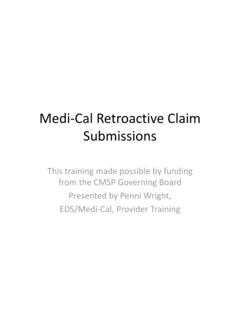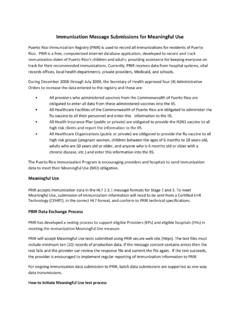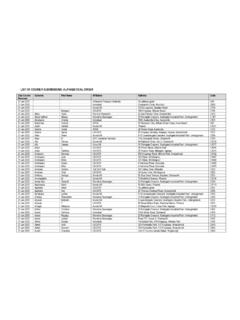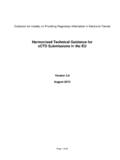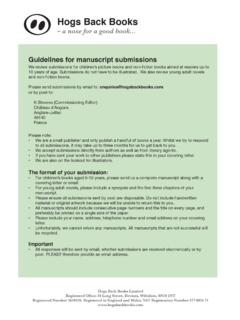Transcription of Beaufort Sea States - WDC, Whale and Dolphin …
1 Beaufort Sea States The Beaufort Sea State Code is a simple scale that can be used to give an approximate but concise description of sea conditions. During Shorewatches, WDCS cetacean researchers use the Beaufort Sea State Code as part of their shore watch protocol. The sea state must be recorded during shore watch because it affects the probability of a sighting. Each increase in sea state results in a decreased chance of sighting animals when present. In high sea States cetacean detection becomes very unlikely and this limits the value of the data collected. For this reason shore watch is not carried out in conditions above sea state 4. In order to determine sea state: Use the sea state photo guide and descriptions. Use binoculars to make an accurate assessment. Look into the wind to record the greatest sea state observed within the observation area.
2 Discount coastal surf. Record your final assessment one minute before shore watch start time. Make a discrete decision on the sea state, 0, 1, 2, 3 or 4, and avoid using a range of sea States 2 to 3. Sea States 0-6 are described below: Sea State 1 Conditions: Ripples. Wind Speed: 1 - 3 knots (wind motion visible in smoke) Wave Height: feet/10cm Sea State 2 Conditions: Small wavelets all over. No whitecaps. Wind Speed: 4 - 6 knots (wind felt on exposed skin and leaves rustle) Wave Height: feet/20cm Sea State 0 Conditions: Sea like a mirror. Wind Speed: Under 1 knot (smoke rises vertically) Wave Height:0 feet References: Gunnlaugsson, T., Siggurjosson, J. and Donovan, 1988. Aerial survey of cetaceans in the coastal waters off Iceland. Rep. int. Whal. Commn: 38: 489-500. Teilmann, J. 2003. Influence of sea States on density estimates of Harbour Porpoises (Phocoena phocoena).
3 J. Cetacean Res. Manage. 5(1): 85-92. Sea State 3 Conditions: Large wavelets. Few white caps here and there. Wind Speed: 7 - 10 knots (leaves and smaller twigs in constant motion) Wave Height:2 feet/60cm Sea State 4 Conditions: Small waves. Fairly frequent white caps. Wind Speed: 11 - 16 knots (dust and loose paper raised. Small branches begin to move) Wave feet/1m Sea State 5 Conditions: Moderate waves. Many white caps. Spray possible. Wind Speed: 17 - 21 knots (branches of a moderate size move. Small trees begin to sway) Wave feet/2m Sea State 6 Conditions: Large waves with white foam crests. Spray probable. Wind Speed: 22 - 27 knots (large branches in motion. Whistling heard in overhead wires) Wave feet/3m

